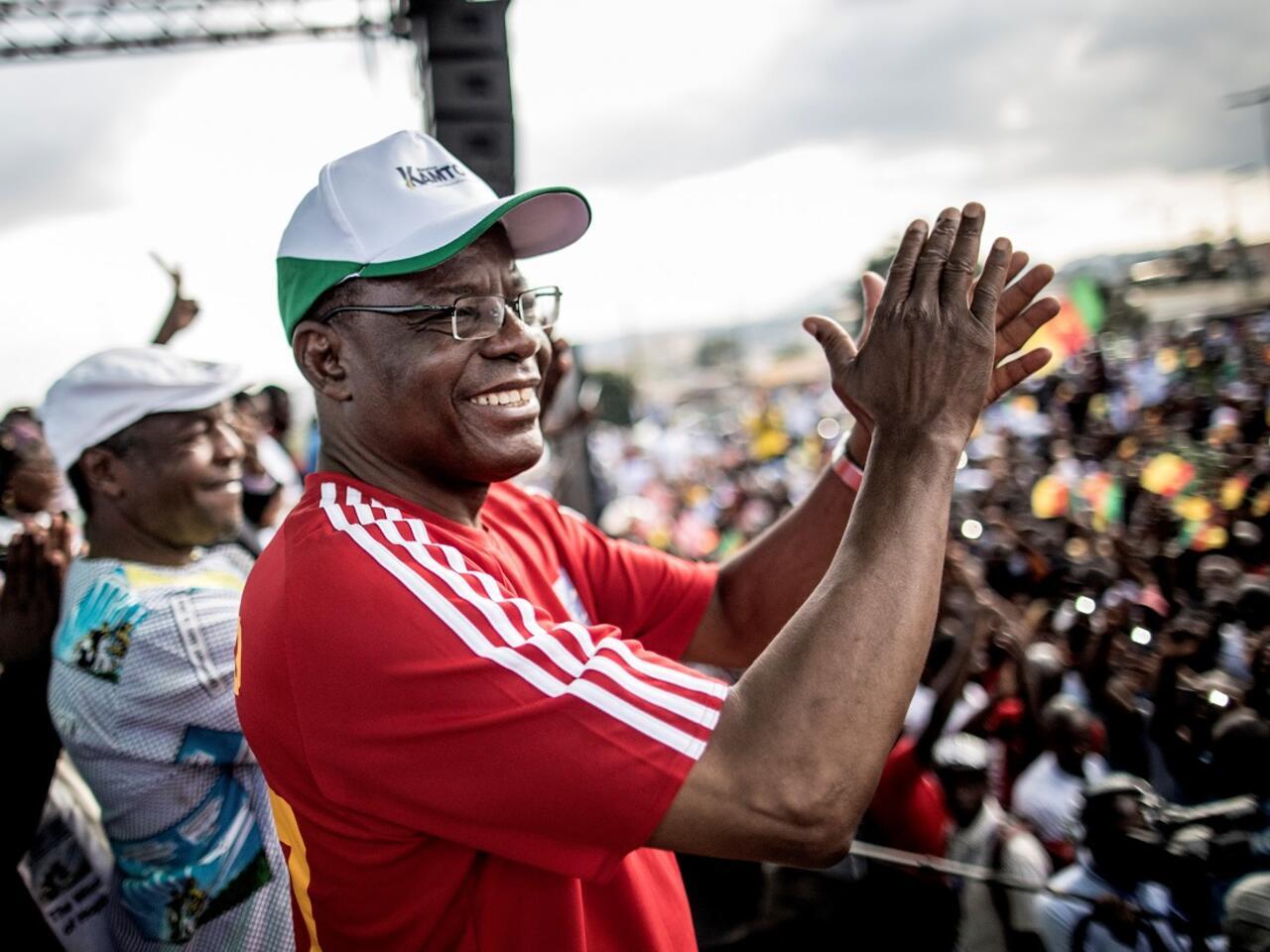
Maurice Kamto, leader of the Cameroonian opposition party Movement for the Rebirth of Cameroon (MRC) is greeted as he arrive on stage in Yaounde, on September 30, 2018 to address a campaign rally for the Presidential Elections. - Cameroon imposed a 48-hour curfew on its English-speaking regions a day ahead of the one-year anniversary of a symbolic "independence" declaration by anglophone separatists, officials said on September 30, 2018. The anniversary comes ahead of October 7, 2018 polls that anglophone secessionists have threatened to disrupt. (Photo by MARCO LONGARI / AFP)
Acclaimed filmmaker Jean-Pierre Bekolo has sharply criticised what he describes as a “regime of fear” after opposition leader Maurice Kamto was barred from contesting the October 2025 presidential election. In a statement released on Sunday, Bekolo said the ruling system had turned fear into a deliberate political weapon, dismantling the democratic process and replacing it with intimidation.
“This fear is not an individual emotion. It is a political strategy. It structures everything: speeches, institutions, the street, the administration, the media. It is the cement of a post-political power, a power that no longer seeks support but paralysis,” Bekolo declared.
The filmmaker said the shift from politics to fear became evident over the weekend. “While on Friday, July 25, we were still in the intelligence of change through the ballot box… on Saturday, July 26, we shifted into the order of fear. An order where the State, instead of guaranteeing debate, deployed intimidation: roadblocks, helmets, shields, armed pickup trucks, riot control devices. In less than twenty-four hours, politics gave way to terror.”
Citing political theorist Hannah Arendt, Bekolo argued that where fear becomes the norm, politics disappears. “Cameroon is experiencing this refusal today. The refusal to act together. The refusal to become a people. The refusal to allow plurality to express itself,” he said.
Bekolo claimed Kamto’s exclusion from the ballot was not merely procedural but designed to “destroy the hypothesis” that Cameroonians could choose freely. “The system didn’t just disqualify his candidacy. It showed that it could not coexist with the possibility of a free people making their own choices… It was therefore necessary to bring everyone back to the stupidity of violence… to the order of fear.”
He accused authorities of rewarding compliance over competence. “Decision-making positions are not occupied by the most brilliant, but by the most docile… those who dominate through terror and not through common sense,” Bekolo said, warning that the cycle of fear could ignite unrest: “Lighting a match on gasoline, knowing it will explode… once the fire is lit, the whole country will go up in flames.”
Bekolo concluded with a call for courage and open dialogue. “Arendt also said that courage is the first political virtue. The courage to think. The courage to speak. The courage to disobey fear. We must now, and the government first and foremost, reject the normalization of fear as a mode of government… to rebuild a common space where intelligence can once again breathe.”
“The question is no longer just: who governs Cameroon? The question is: what governs? I hope it is not the gendarmes and police officers at every intersection.”



